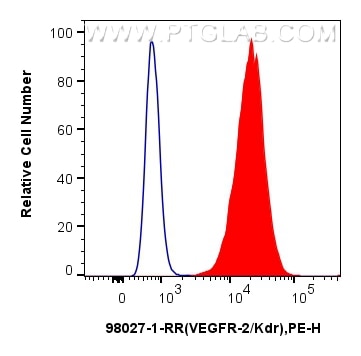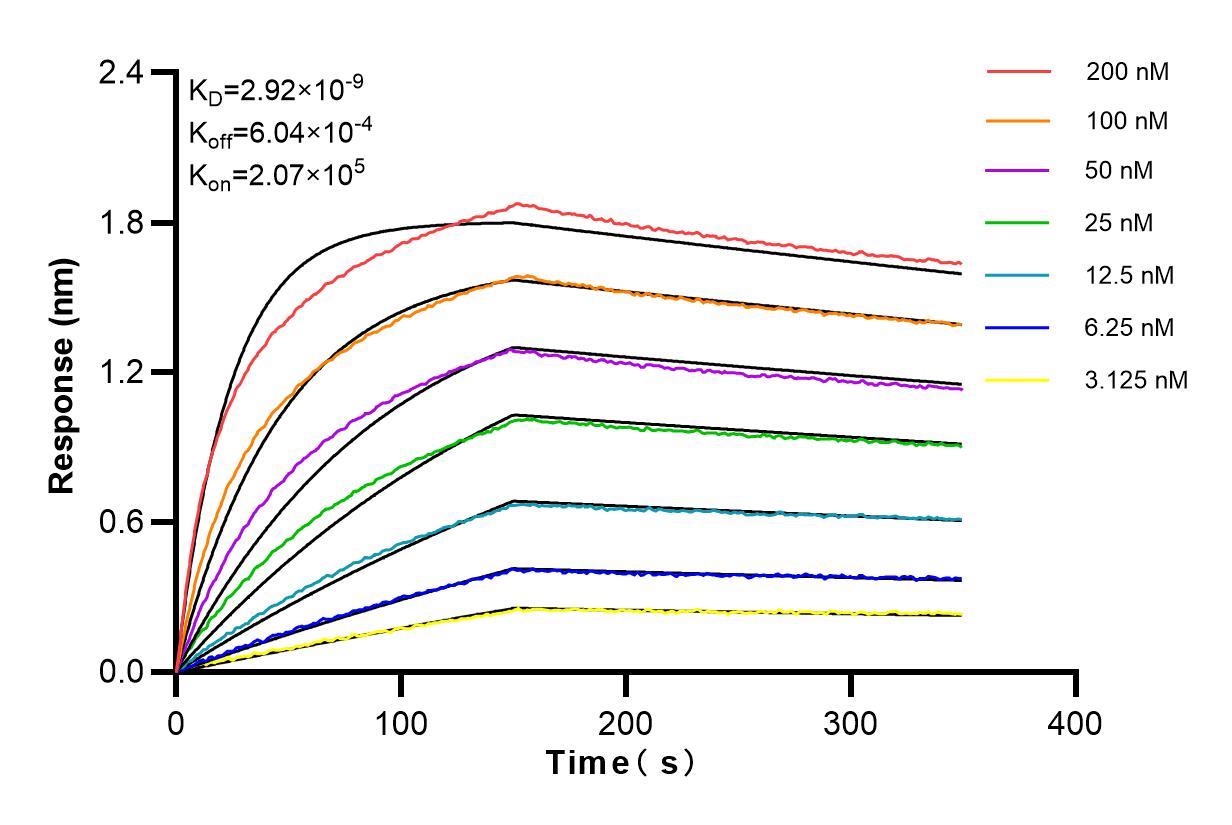Validation Data Gallery
Tested Applications
| Positive FC detected in | bEnd.3 cells |
Recommended dilution
| Application | Dilution |
|---|---|
| This reagent has been tested for flow cytometric analysis. It is recommended that this reagent should be titrated in each testing system to obtain optimal results. | |
| Sample-dependent, Check data in validation data gallery. | |
Product Information
98027-1-RR targets VEGFR2/CD309 in FC applications and shows reactivity with mouse samples.
| Tested Reactivity | mouse |
| Host / Isotype | Rabbit / IgG |
| Class | Recombinant |
| Type | Antibody |
| Immunogen | Recombinant protein 相同性解析による交差性が予測される生物種 |
| Full Name | kinase insert domain protein receptor |
| Calculated molecular weight | 150KD |
| GenBank accession number | NM_010612.2 |
| Gene Symbol | VEGFR-2 |
| Gene ID (NCBI) | 16542 |
| RRID | AB_3672171 |
| Conjugate | Unconjugated |
| Form | Liquid |
| Purification Method | Protein A purfication |
| UNIPROT ID | P35918-1 |
| Storage Buffer | PBS with 0.09% sodium azide. |
| Storage Conditions | Store at 2-8°C. Stable for one year after shipment. |
Background Information
VEGFR2, also named as CD309, KDR and FLK1, is a receptor for VEGF or VEGFC. VEGFR2 which belongs to the protein kinase superfamily, has a tyrosine-protein kinase activity. The VEGF-kinase ligand/receptor signaling system plays a key role in vascular development and regulation of vascular permeability. In case of HIV-1 infection, the interaction with extracellular viral Tat protein seems to enhance angiogenesis in Kaposi's sarcoma lesions. VEGFR2 functions as the main mediator of VEGF-induced endothelial proliferation, survival, migration, tubular morphogenesis and sprouting. Mutations of this gene are implicated in infantile capillary hemangiomas.
Protocols
| Product Specific Protocols | |
|---|---|
| FC protocol for VEGFR2/CD309 antibody 98027-1-RR | Download protocol |
| Standard Protocols | |
|---|---|
| Click here to view our Standard Protocols |

